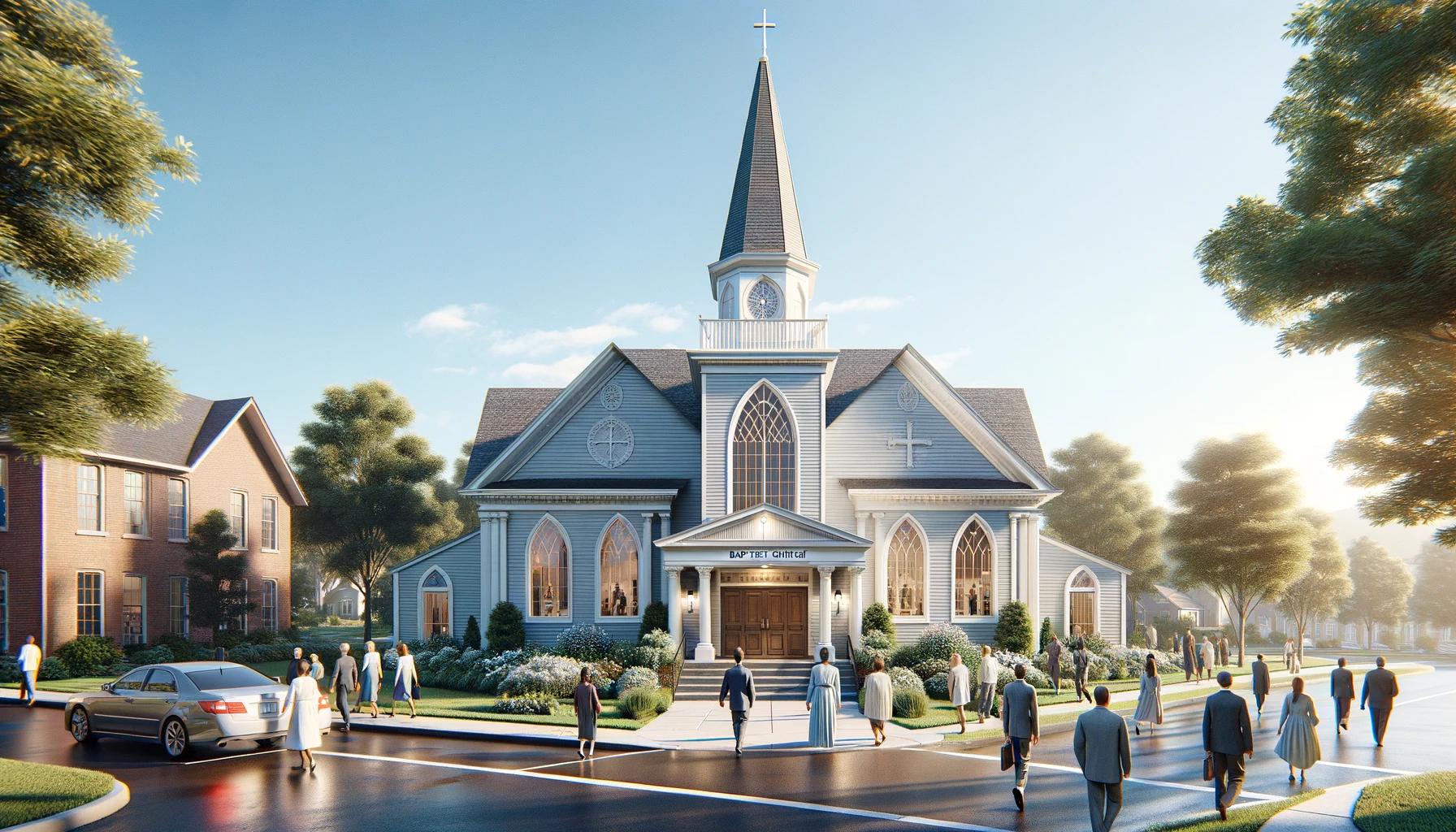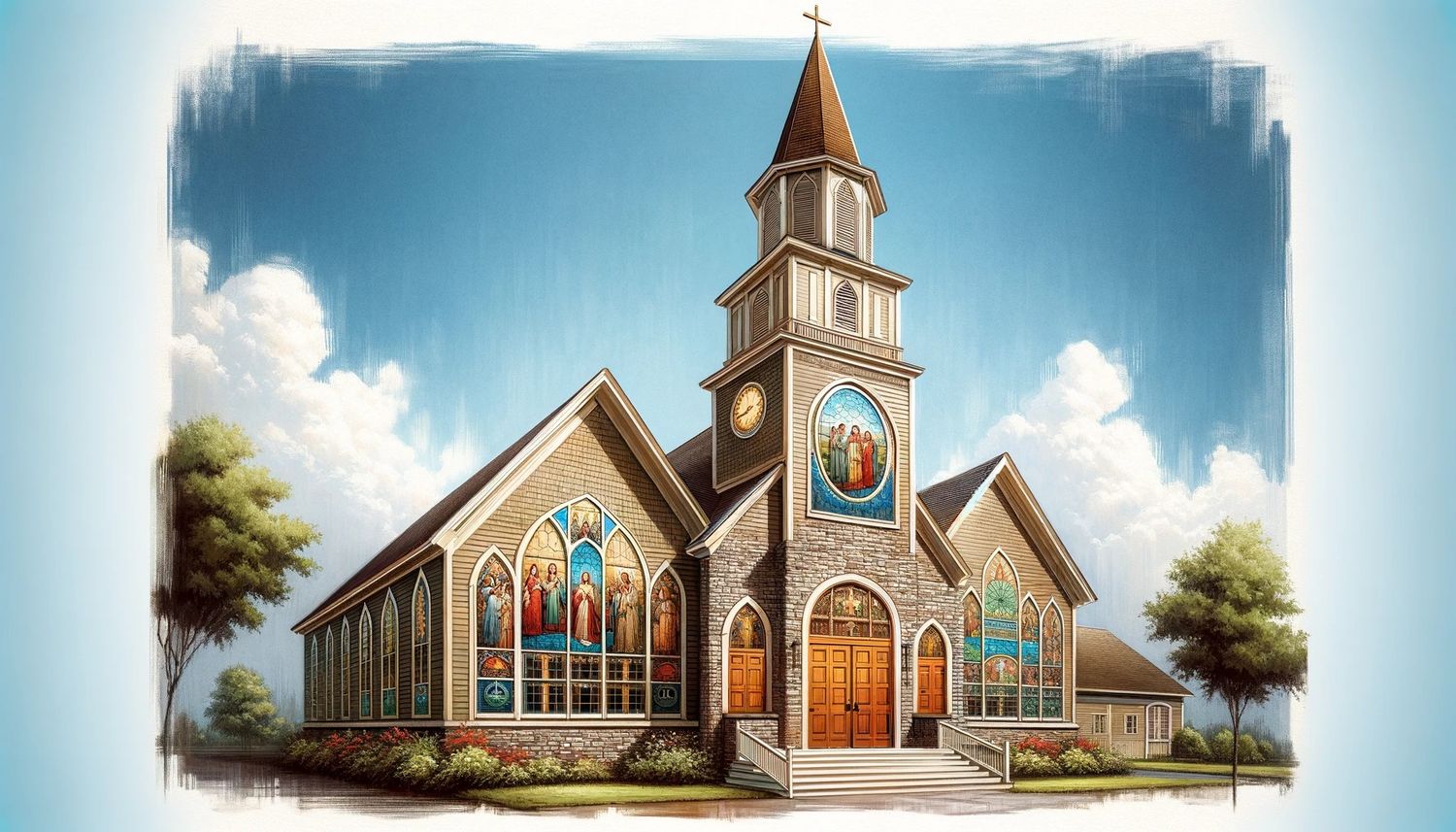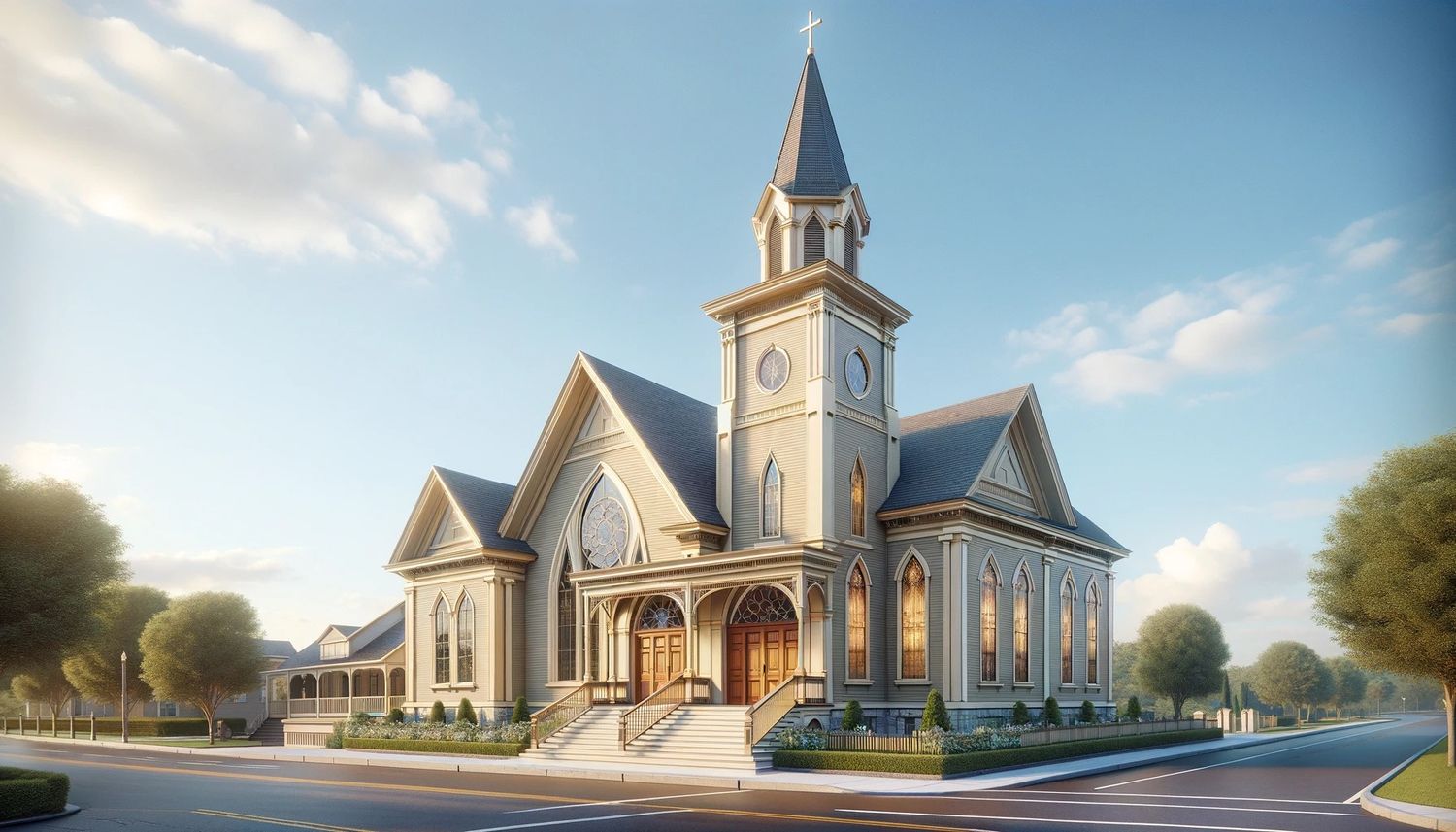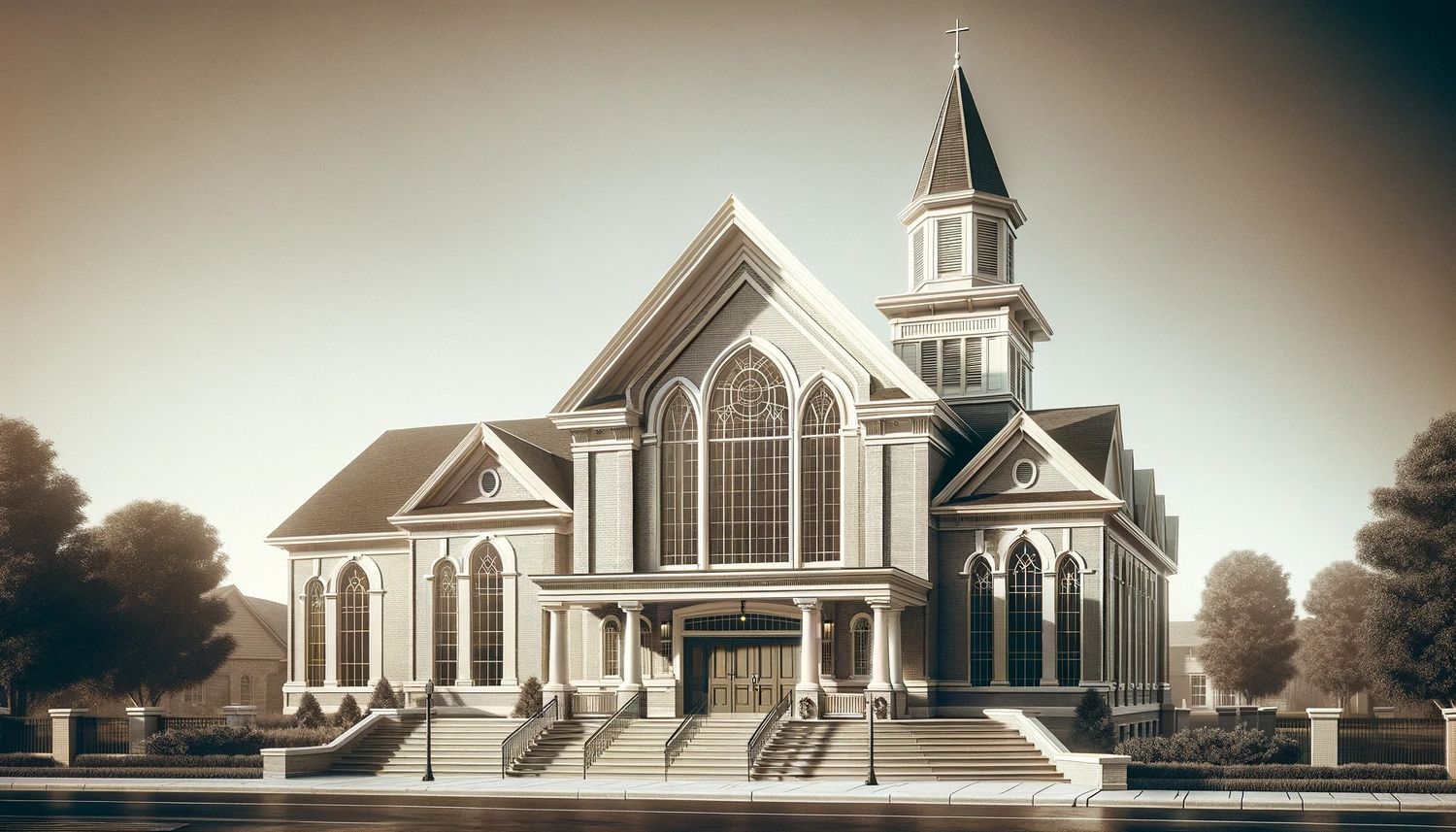Home>Theology and Spirituality>What Is Wrong With The Baptist Church


Theology and Spirituality
What Is Wrong With The Baptist Church
Published: February 20, 2024
Jason DeRose, Managing Editor at Christian.net, uses his expertise in religion and journalism to deepen understanding of faith's societal impacts. His editorial leadership, coupled with a strong academic background, enriches the platform’s diverse content, earning him recognition in both journalism and religious circles.
Explore the theological and spiritual issues within the Baptist Church and discover what may be amiss in its teachings and practices. Gain insights into the challenges and controversies surrounding its theology and spirituality.
(Many of the links in this article redirect to a specific reviewed product. Your purchase of these products through affiliate links helps to generate commission for Christian.net, at no extra cost. Learn more)
Table of Contents
Introduction
The Baptist Church, a prominent denomination within Christianity, has a rich history and a significant impact on the spiritual landscape. However, like any institution, it is not immune to criticism and scrutiny. In this article, we will delve into the complexities and challenges facing the Baptist Church, shedding light on its historical background, leadership issues, controversial beliefs and practices, lack of diversity and inclusivity, as well as its handling of scandals and controversies.
As we embark on this exploration, it's important to approach the topic with an open mind and a spirit of understanding. The goal is not to disparage the Baptist Church, but rather to critically examine areas that have sparked concern and debate within and outside the faith community. By doing so, we can gain a deeper understanding of the Baptist Church and its role in the lives of its members and society at large.
Read more: What Is Wrong With Charismatic Churches
History of the Baptist Church
The history of the Baptist Church is a tapestry woven with threads of faith, dissent, and resilience. Its origins can be traced back to the early 17th century in England, amidst a backdrop of religious and political upheaval. The Baptist movement emerged as a response to the perceived corruption and hierarchy within the Church of England, advocating for a return to the simplicity and purity of New Testament Christianity.
One of the defining moments in Baptist history is the establishment of the first Baptist congregation in 1609 by John Smyth in Amsterdam. This marked the formalization of Baptist beliefs and practices, including the rejection of infant baptism in favor of believer's baptism, a foundational tenet that continues to distinguish Baptists from other Christian denominations.
The Baptist movement gained momentum as it spread to the American colonies, where it took root and flourished. Notably, Roger Williams, a staunch advocate for religious freedom, played a pivotal role in the early development of Baptist congregations in the New World. His advocacy for the separation of church and state and the autonomy of local churches resonated deeply within the Baptist tradition, shaping its identity and ethos.
Throughout the centuries, the Baptist Church has been characterized by its commitment to individual conscience, congregational autonomy, and the priesthood of all believers. This emphasis on personal faith and the authority of the local church has contributed to the diverse spectrum of Baptist beliefs and practices, ranging from conservative to progressive interpretations of scripture.
The Baptist Church has weathered significant challenges, including persecution, theological debates, and internal divisions. Despite these obstacles, it has evolved into a global movement with a myriad of affiliations, from Southern Baptists to American Baptists, each with its distinct traditions and theological emphases.
Today, the history of the Baptist Church stands as a testament to the enduring legacy of dissent, freedom, and faith. Its journey reflects the resilience of a community shaped by its commitment to biblical principles, individual liberty, and the proclamation of the gospel. As the Baptist Church continues to navigate the complexities of the modern world, its historical narrative serves as a source of inspiration and introspection, guiding its path into the future.
Issues with Church Leadership
The Baptist Church, like many religious institutions, has grappled with challenges related to church leadership. These issues have sparked introspection and debate within the faith community, prompting a closer examination of the dynamics at play within the organizational structure.
One of the primary concerns surrounding church leadership in the Baptist tradition revolves around the exercise of authority and decision-making processes. In some instances, there have been criticisms of hierarchical tendencies and centralized power within certain Baptist congregations or denominational bodies. This has led to questions about the extent of transparency, accountability, and inclusivity in the leadership framework.
Moreover, the issue of gender equality and the role of women in church leadership has been a point of contention within the Baptist Church. While some Baptist congregations have embraced egalitarian principles, allowing women to serve in pastoral or leadership roles, others maintain more traditional interpretations that restrict women from holding certain positions of authority. This disparity has fueled discussions about the need for greater gender inclusivity and the recognition of diverse leadership gifts within the church.
Additionally, the Baptist Church has encountered challenges related to succession planning and leadership transitions. Navigating the process of identifying and preparing future leaders, particularly within the context of long-tenured pastors or influential figures, has presented complexities for many congregations. The absence of clear succession strategies can lead to uncertainty and potential disruptions within the church community.
Furthermore, issues of ethical conduct and moral integrity among church leaders have surfaced, raising concerns about the impact of misconduct or lapses in leadership behavior on the congregation and the broader perception of the church. Instances of financial impropriety, ethical breaches, or abuse of authority have prompted soul-searching and calls for robust mechanisms to uphold ethical standards and safeguard the well-being of the faith community.
Addressing these issues with church leadership requires a commitment to introspection, dialogue, and proactive measures aimed at fostering transparency, inclusivity, and ethical governance. By engaging in constructive conversations and embracing principles of servant leadership, the Baptist Church can navigate these challenges and cultivate a leadership culture that reflects the values of humility, accountability, and ethical stewardship.
In essence, the complexities surrounding church leadership within the Baptist tradition underscore the need for continual reflection, discernment, and a steadfast commitment to nurturing leaders who exemplify the virtues of servant-hood and ethical leadership, thereby guiding the church with wisdom, integrity, and grace.
Controversial Beliefs and Practices
Within the Baptist Church, certain beliefs and practices have sparked controversy and debate, reflecting the diverse theological landscape and interpretations within the denomination. These contentious issues have prompted introspection and dialogue, shaping the discourse within the faith community.
One of the enduring points of contention revolves around the interpretation of scripture, particularly concerning matters such as biblical inerrancy, creationism, and eschatology. While many Baptist congregations uphold a conservative stance on the infallibility and authority of the Bible, differing perspectives on the literal versus metaphorical interpretation of certain passages have given rise to theological tensions. Debates surrounding the age of the earth, the nature of creation, and the timeline of end-times events have underscored the complexities inherent in reconciling diverse theological viewpoints within the Baptist tradition.
Furthermore, the Baptist Church has grappled with contentious issues related to social and ethical matters, including human sexuality, gender identity, and reproductive rights. The intersection of deeply held religious convictions with evolving societal norms has led to divergent perspectives on issues such as LGBTQ+ inclusion, marriage equality, and reproductive healthcare. These debates have illuminated the challenges of navigating the tension between upholding traditional theological convictions and extending compassion and inclusivity to marginalized communities.
In addition, the Baptist Church has encountered controversy surrounding its stance on ecumenism and interfaith dialogue. While some Baptist groups have embraced collaborative efforts with other Christian denominations and faith traditions, others have maintained a more exclusive posture, emphasizing doctrinal purity and separation from perceived theological compromise. This divergence in approach has sparked discussions about the balance between preserving doctrinal distinctiveness and engaging in cooperative endeavors for the greater good of society.
Moreover, the Baptist tradition's historical association with issues such as racial segregation and slavery has left a complex legacy that continues to reverberate within the faith community. Confronting the historical implications of racial injustice and striving for racial reconciliation has been a point of contention, prompting soul-searching and efforts to address systemic inequalities and promote racial diversity and harmony within Baptist congregations.
Navigating these controversial beliefs and practices requires a spirit of humility, empathy, and a commitment to engaging in respectful dialogue. By fostering an environment that encourages thoughtful reflection, mutual understanding, and a willingness to grapple with complex theological and ethical issues, the Baptist Church can navigate these controversies with grace and integrity, seeking to uphold its core convictions while extending compassion and inclusivity to all who seek spiritual community and guidance.
Lack of Diversity and Inclusivity
The Baptist Church, like many religious institutions, has faced scrutiny regarding its approach to diversity and inclusivity. Within the fabric of the faith community, concerns have been raised about the extent to which the Baptist Church embraces and reflects the rich tapestry of human diversity, encompassing factors such as race, ethnicity, gender, socio-economic background, and theological perspectives.
One of the focal points of this discourse revolves around racial diversity and racial reconciliation within Baptist congregations. Historically, the Baptist tradition has grappled with the legacy of racial segregation and the perpetuation of systemic inequalities. While strides have been made to address these issues, there remains a need for intentional efforts to foster racial diversity and equity within the church. Embracing a spirit of inclusivity that transcends racial barriers is essential for creating a welcoming and affirming environment for individuals from diverse racial and ethnic backgrounds.
Furthermore, the Baptist Church has encountered challenges related to gender inclusivity and the affirmation of diverse leadership gifts. While some Baptist congregations have embraced egalitarian principles, allowing women to serve in pastoral and leadership roles, others maintain more traditional interpretations that restrict women from holding certain positions of authority. This disparity has prompted discussions about the need for greater gender inclusivity and the recognition of diverse leadership contributions within the church.
In addition to racial and gender diversity, the Baptist Church has grappled with inclusivity in theological perspectives and doctrinal interpretations. The denomination encompasses a wide spectrum of theological beliefs, ranging from conservative to progressive interpretations of scripture. Embracing a spirit of inclusivity that respects diverse theological viewpoints while upholding core biblical principles is crucial for fostering a vibrant and intellectually stimulating faith community.
Addressing the lack of diversity and inclusivity within the Baptist Church necessitates intentional efforts to cultivate an environment that celebrates and affirms the multifaceted identities and contributions of its members. By embracing diversity in all its forms and fostering a culture of inclusivity, the Baptist Church can exemplify the transformative power of unity amidst diversity, reflecting the timeless message of love, acceptance, and hospitality embodied in the teachings of Jesus Christ.
Read more: What Is Wrong With Catholic Confession
Handling of Scandals and Controversies
The Baptist Church, like many religious institutions, has grappled with the challenging task of addressing scandals and controversies that have arisen within its ranks. These incidents, ranging from allegations of misconduct to doctrinal disputes, have tested the resilience and integrity of the faith community. How the Baptist Church navigates and responds to these crises speaks volumes about its commitment to transparency, accountability, and the pursuit of justice.
In instances where scandals involving church leaders or prominent figures have surfaced, the Baptist Church has been confronted with the imperative of conducting thorough and impartial investigations. The handling of such sensitive matters requires a delicate balance between respecting the presumption of innocence and ensuring that allegations are taken seriously and addressed with the utmost gravity. Transparent communication with the congregation and the broader community is essential in fostering trust and demonstrating a commitment to upholding ethical standards.
Moreover, controversies stemming from theological disagreements or ethical dilemmas have prompted the Baptist Church to engage in robust dialogue and discernment. Navigating doctrinal disputes or ethical quandaries demands a spirit of humility, open-mindedness, and a willingness to engage in respectful debate. Embracing diverse perspectives while upholding the core tenets of the faith is crucial in fostering a culture of intellectual honesty and mutual respect within the faith community.
Furthermore, the Baptist Church has been challenged to provide pastoral care and support to those affected by scandals and controversies. Demonstrating empathy, compassion, and a commitment to healing and restoration is paramount in guiding the faith community through periods of turmoil. Offering avenues for counseling, reconciliation, and spiritual guidance underscores the church's dedication to nurturing the well-being of its members amidst adversity.
In confronting scandals and controversies, the Baptist Church has the opportunity to exemplify the virtues of accountability, humility, and grace. By embracing a posture of transparency, engaging in constructive dialogue, and prioritizing the welfare of those impacted, the faith community can navigate these challenges with integrity and emerge stronger, reaffirming its commitment to upholding the principles of justice, compassion, and ethical stewardship.
Conclusion
In conclusion, the Baptist Church stands at a crossroads, grappling with a myriad of challenges and opportunities as it navigates the complexities of the modern world. The historical tapestry of the Baptist tradition, woven with threads of dissent, resilience, and faith, serves as a testament to the enduring legacy of a community shaped by its commitment to biblical principles, individual liberty, and the proclamation of the gospel.
As the Baptist Church confronts issues related to church leadership, controversial beliefs and practices, lack of diversity and inclusivity, and the handling of scandals and controversies, it is presented with a profound opportunity for introspection, growth, and renewal. Embracing a spirit of humility, empathy, and a commitment to engaging in respectful dialogue is essential in addressing these multifaceted challenges.
The Baptist Church has the potential to exemplify the transformative power of unity amidst diversity, reflecting the timeless message of love, acceptance, and hospitality embodied in the teachings of Jesus Christ. By fostering a culture of inclusivity that celebrates and affirms the multifaceted identities and contributions of its members, the Baptist Church can chart a path toward a more vibrant and inclusive faith community.
Furthermore, navigating controversies with grace and integrity, upholding ethical standards, and prioritizing the welfare of those impacted by scandals and controversies are pivotal in shaping the church's response to adversity. By embracing a posture of transparency, engaging in constructive dialogue, and demonstrating a commitment to justice and compassion, the Baptist Church can emerge stronger and reaffirm its dedication to ethical stewardship and pastoral care.
In essence, the Baptist Church has the opportunity to embark on a journey of introspection, dialogue, and proactive measures aimed at fostering transparency, inclusivity, and ethical governance. By embracing the virtues of servant leadership, humility, and grace, the Baptist Church can navigate these challenges with wisdom and integrity, guiding the faith community toward a future characterized by resilience, compassion, and a steadfast commitment to the timeless principles of the Christian faith.














